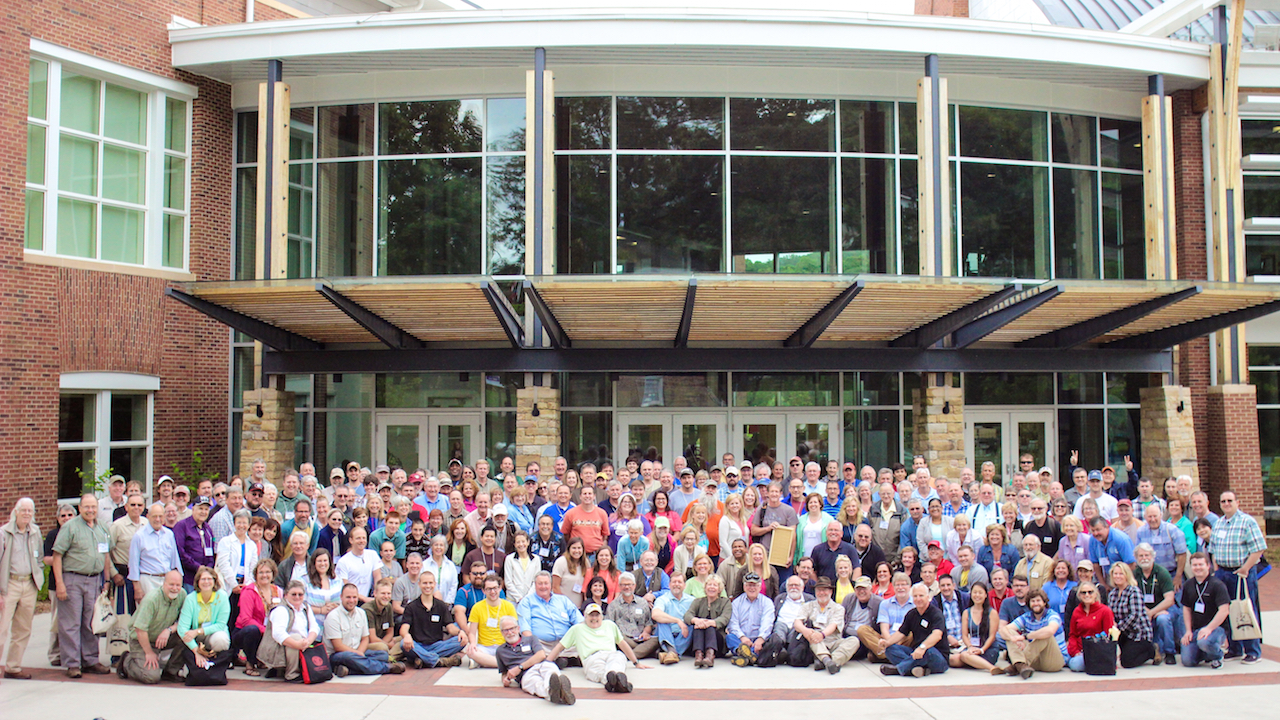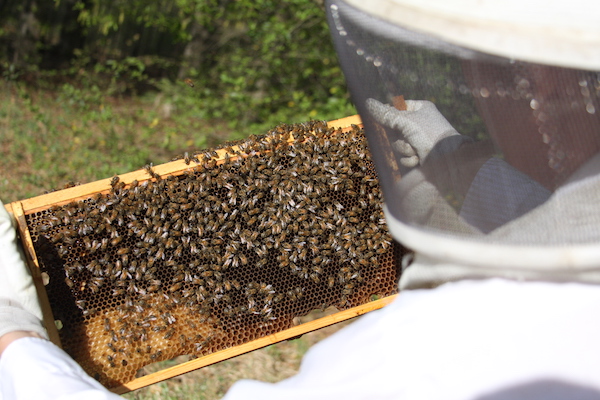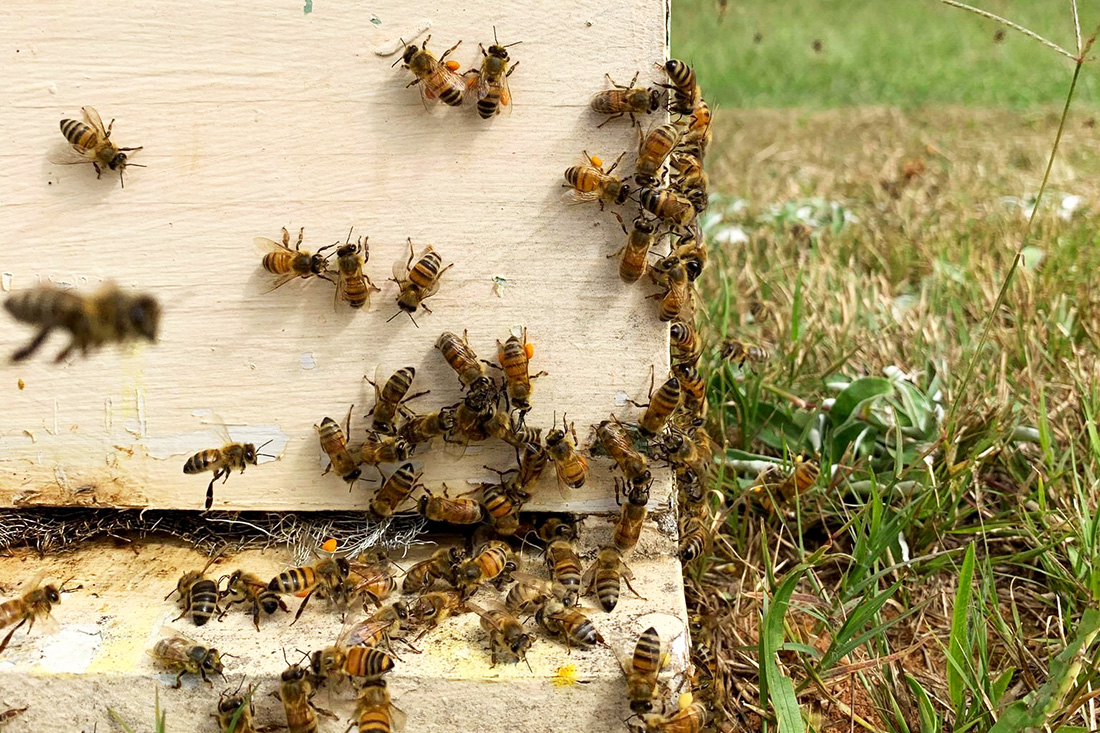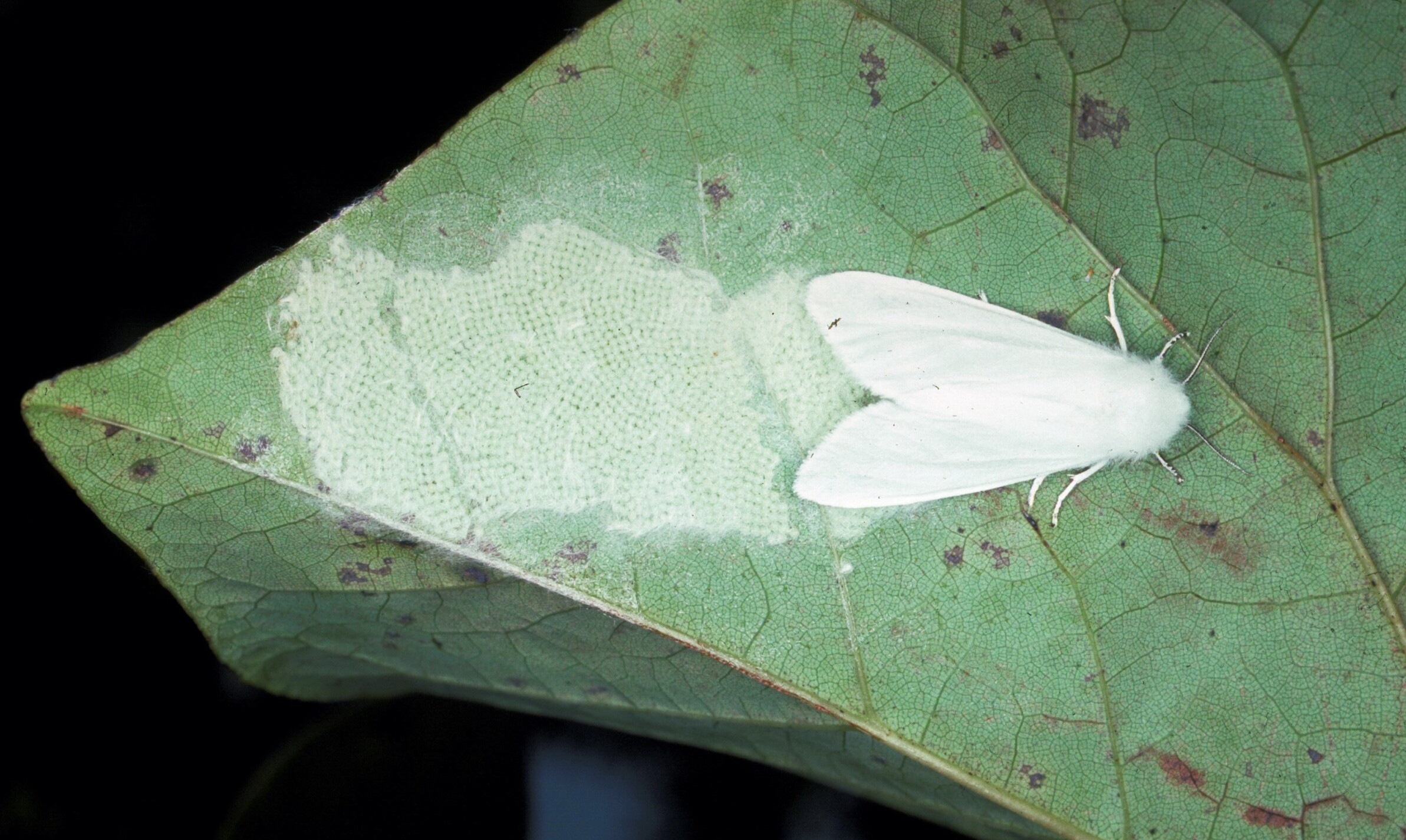For more than two decades, beekeepers from across the Southeast and beyond have come together each spring in the north Georgia mountains to talk bees, learn from each other and hobnob with some of the most renowned bee experts in the world.
Part comic-con for bees, part tent revival for pollinator protection and part Extension workshop, the annual Young Harris College – University of Georgia Beekeeping Institute has educated more than 2,500 beekeepers over the past 25 years.
“This is our 25th year doing the Young Harris College – UGA Beekeeping Institute, and I think anything that lasts 25 years is pretty commendable,” UGA Honey Bee Program Director Keith Delaplane. “This has emerged from being just a regional meeting to having a national and international scale. We have people coming in from different countries and from many, many states.”
In 1991, Delaplane teamed up with fellow beekeeper and Young Harris College biology professor Paul Arnold to develop a regional beekeeping workshop to help Southeastern beekeepers tackle emerging problems.
“We needed a place where people could go to get a good, well-rounded education in beekeeping,” Arnold said. “There were a lot of local bee clubs and beekeepers all over Georgia and the Southeast, but one of the things that was lacking back then was an educational component. … At the time we started this, we wanted to make a difference in the education of beekeepers.”
Starting with 50 beekeepers and a few hives around campus, UGA and Young Harris instructors and bee experts from across the region came together to host the first institute. Over the years, each three-day workshop has grown to include between 250 and 300 student beekeepers and instructors from around the world.
This year beekeepers from as far away as the Cayman Islands, Oklahoma and Michigan joined the institute.
The institute’s reputation for presenting the latest, research-based information in an informal atmosphere has not only increased the geographic diversity of the attendees, but has also grown the demographic diversity of the attendees.
The beekeepers gathered at the institute in recent years are more diverse in terms of age and lifestyle. Twenty-five years ago, the crowd was older and more likely to live on rural farmland, Arnold said. Today, you’re just as likely to meet a 35-year-old suburban dad or a 20-something working on an urban agriculture project in downtown Atlanta.
“In the last 20 years or so, there’s been a resurgence in beekeeping interest,” Arnold said. “I see more young beekeepers today.”
“Sue Selewski, who farms several vacant lots in downtown Detroit, came down to the beekeeping institute because she was looking to revitalize her beekeeping operation and expand her farm.”
“We don’t have any programs like this in Michigan — nothing that’s this extensive,” said Selewski. “I really wanted to get into something that was more scientific.”
“This has been very, very good,” she said. “My mind was on fire yesterday.”
Selewski plans to take these lessons back to Michigan and share them with her local bee club in Detroit.
The skill and information sharing that happens at local bee clubs after members return home makes it hard to measure the full impact of the institute, said Jennifer Berry, a UGA-based bee educator, institute organizer and laboratory manager for the UGA Honey Bee Program.
There is a lot of informal information sharing after the institute, but, over the years, the staff has also certified more than 500 Georgia Master Beekeepers. The training and rigorous testing program — run as part of the institute — is modeled on the Georgia Master Gardener Extension Volunteer program and requires an annual community education or service commitment to maintain certification.
For instructors like Berry, the annual institute is a chance to recharge. The enthusiasm of the students helps to reaffirm the reason that she and other researchers study bee health.
“It’s really enjoyable to meet new beekeepers and it really reinvigorates us,” Berry said. “The questions that new beekeepers ask — because they haven’t been involved in it as long — actually stimulates us to think about it in a different light as well.”
For more information about the Young Harris College – UGA Beekeeping Institute and the UGA Honey Bee Program, please visit ent.uga.edu/bees/.





